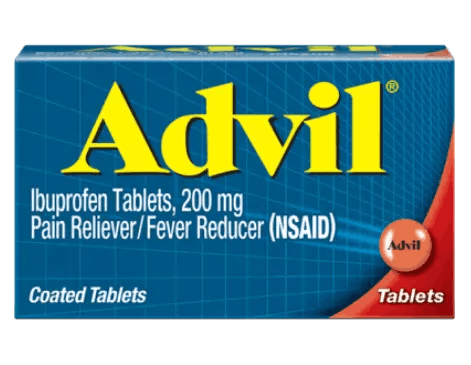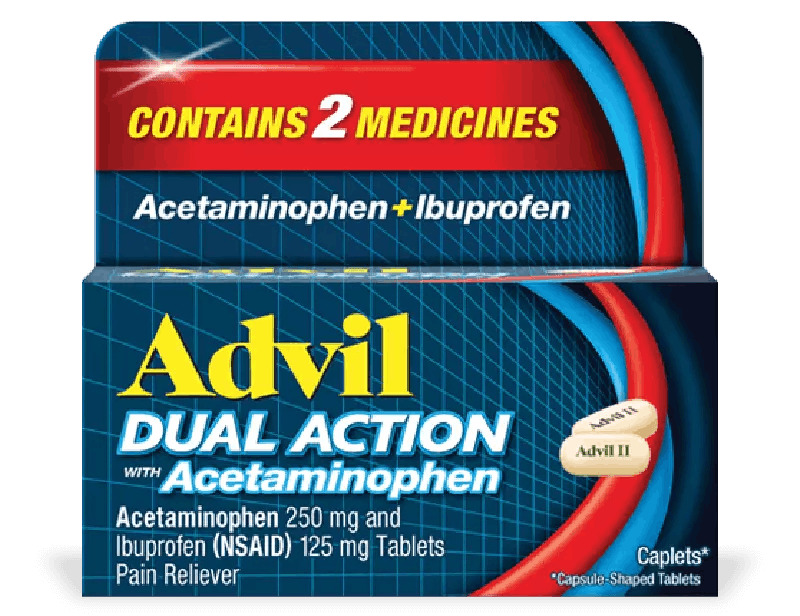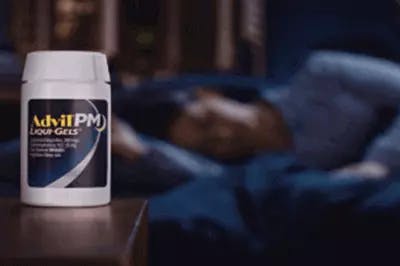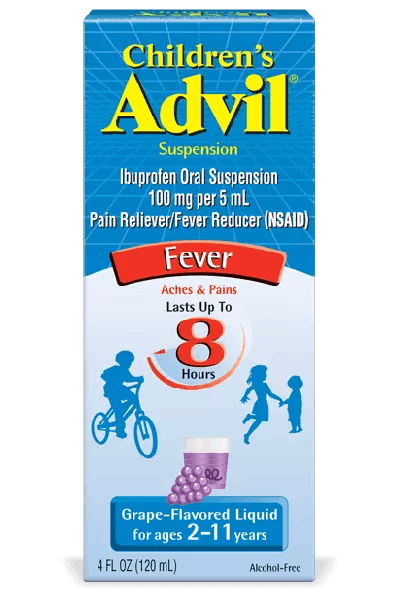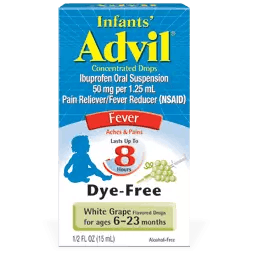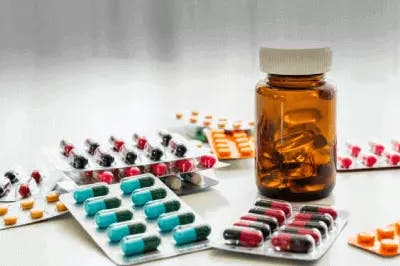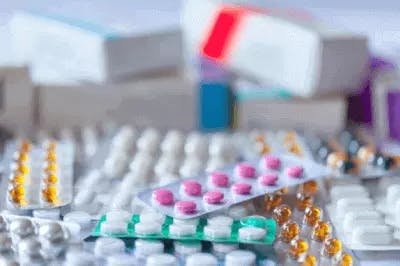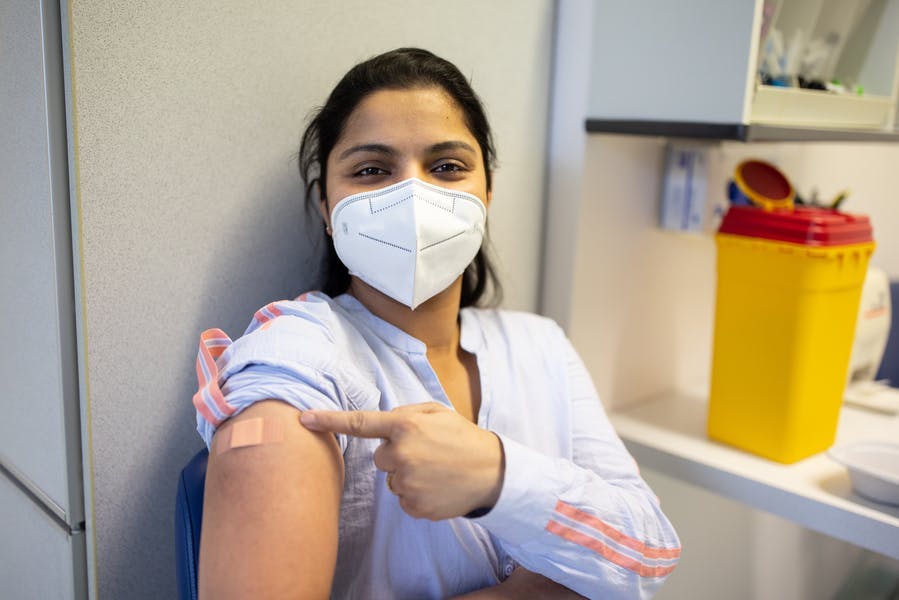Managing Body Aches and Pains After a COVID-19 Booster
Muscle Aches & Pains
A COVID-19 vaccine or booster can cause people to have very different physical reactions.1 Some people may not experience any side effects at all, while others have aches and pains that may affect their ability to live their lives.1 While feeling achy after a covid booster or vaccine will usually go away in a few days, there are a few ways to manage this side effect.1
Body Aches after a COVID-19 Booster or Vaccine
When you're getting a COVID-19 booster or vaccine, knowing what to expect after the vaccination can help put your mind at ease.
Getting a COVID-19 vaccine or booster not only protects you, but also the people around you. They’re effective at protecting people from becoming seriously ill or requiring hospitalization and are best at protecting you when you’re up to date on recommended boosters.2 After receiving the vaccination you may experience some side effects, but the CDC tells us that these are completely normal signs that your body is building protection against the virus.1 While some people have no symptoms, others may experience symptoms like:1
- Pain, swelling, and redness on the arm where you received the shot.
- Headache, chills, fever, muscle pain, nausea and tiredness that should go away in a few days.1
Younger children may lose their appetite and become sleepy and irritable with swollen lymph nodes.1 Older children may find that side effects become more common after multiple doses and boosters and may include muscle pain, chills and headaches.1
Managing Body Aches from a COVID-19 Booster
When you receive a COVID-19 booster or vaccine, it’s important to remember that the side effects you’re experiencing are a sign that your immune system is responding and building protection to the disease.3 In many vaccines, the side effects may be mildest for the first dose; if you only had minor aches and pains for your initial shot, all subsequent shots and boosters will likely present stronger effects.2 Having the knowledge can help you manage the body aches you may experience after receiving a COVID booster shot.
Some tips to help manage these common side effects include:
- Don’t take any pain- or fever-reducing medication prior to receiving your booster or vaccine. Over-the-counter pain relievers were not studied as pain prevention for a COVID vaccine or booster, and they are not FDA approved for that type of use. After receiving your booster, though, the CDC recommends over-the-counter medications with ibuprofen (eg. Advil). Ibuprofen is indicated to treat a range of pain types and fever.1 Aches and fever are common side effects after a COVID-19 vaccination, so if you experience them, an NSAID like Advil Liqui-Gels can help you manage.1
- Side effects may affect your ability to go about your daily routine, so plan for some low-key days following your vaccination. Per the CDC, any discomfort should go away after a few days. Most symptoms should be resolved or steadily improving within 48 hours.3
- If the site of injection is red, sore or swollen, you can use an ice pack or a cold, damp towel for surface-level relief.4 Pair these actions with a NSAID like Advil for deeper relief.
- If you’re experiencing a fever as a side effect, do your best to stay hydrated and wear comfortable, breathable clothing.1 Make sure to get plenty of rest to allow your body to recover.1
- Soreness at the injection site is very common and while your first inclination may be to keep your arm still to mitigate any uncomfortable sensations, keep using your arm as much as you normally would.1
Whether you’re getting a COVID-19 booster shot or any vaccine, knowing how to take care of yourself and manage side effects will make you feel more prepared and empowered. Keep a NSAID like Advil on hand to help find relief from aches and pains that frequently accompany a COVID booster. In particular, pick up Advil Liqui-Gels. Strong on tough pain and readily available on the pharmacy shelf, Advil Liqui-Gels can provide fast-acting relief from the types of aches and pains that accompany colds and booster shots.
Getting a vaccine of any kind is an important step toward keeping yourself and those around you from getting sick. The vaccines and boosters available for COVID-19 are safe and effective; they can help you avoid more serious outcomes with COVID-19 that could lead to hospitalization.5 Additionally, receiving a COVID-19 booster is an effective, alternative way to build your personal immunity to contracting the disease.5 If you’ve already had COVID-19 and are vaccinated, staying up to date on boosters can keep you out of the hospital should you become infected again.5
If you have questions about Advil and COVID-19 vaccine symptoms, read our FAQs.
Source Citations:
- Possible Side Effects After Getting a COVID-19 Vaccine. Centers for Disease Control and Prevention. https://www.cdc.gov/coronavirus/2019-ncov/vaccines/expect/after.html. Accessed 6/27/23.
- Stay Up to Date with COVID-19 Vaccines. Centers for Disease Control and Prevention. https://www.cdc.gov/coronavirus/2019-ncov/vaccines/stay-up-to-date.html..Accessed 6/27/23.
- COVID-19 Vaccine Side Effects Tip Sheet. Lurie Children’s Hospital. https://www.luriechildrens.org/globalassets/media/pages/covid-19/covid-19vaccinesideeffectstip-sheet-1.pdf. Accessed 6/27/23.
- Tips to Reduce Side Effects after Getting the COVID-19 Vaccine. Yale New Haven Health. https://www.ynhhs.org/patient-care/covid-19/Vaccine/Tips-to-reduce-side-effects. Accessed 6/27/23.
- Benefits of Getting a COVID-19 Vaccine. Centers for Disease Control and Prevention. https://www.cdc.gov/coronavirus/2019-ncov/vaccines/vaccine-benefits.html. Accessed 6/27/23.
